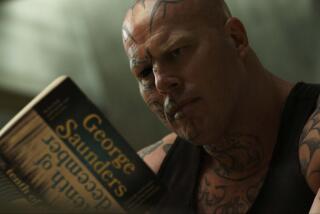And another thing
It must be my problem. Watching a feminist I’ve admired my entire life dissolve into a whingeing puddle in her late 50s is painful. Katha Pollitt’s fourth collection of essays is self-indulgent at best: She writes about losing her boyfriend; Web-stalking her ex-boyfriend (a phrase used so often it causes a kind of vertigo as a reader learns to anticipate the free fall of self-hatred and victim mania); yuppies on Manhattan’s Upper West Side (apparently sacred ground for poverty-stricken intellectuals); real-estate developers in Connecticut (No! Yes!); and the popularity of plastic surgery. These are just a few of the topics that get Pollitt going. “It’s not as if I like being like this,” she admits. “People who despair after a certain age are just depressing. We don’t have the looks for it, and besides, we make others uncomfortable: what if we’re on to something?”
What could turn so fierce an intellectual as Pollitt (just last week in her column for the Nation, she eviscerated “repentant war proponent” Michael Ignatieff, writing: “Excuse me while I set myself on fire”) into a woman who wraps up a rant on the perils of motherhood with the phrase, “Fortunately, I loved breast feeding”? And why does she insist on parading her helplessness? “After my boyfriend left me, I went a little crazy for a while,” she writes, describing in excruciating detail the hours she spent online, reading about him and his philandering tendencies.
Is this what books are for? A kind of revenge-fest? According to Pollitt, the title essay and its follow-up, “Webstalker,” both of which were first published in the New Yorker, were extremely popular with readers. But for anyone who has admired and been inspired by Pollitt’s Nation columns, they induce a kind of despair. Far better are the essays on her card-carrying Communist parents, Basil and Leonora, both watched (no, stalked) by FBI agents for years. Pollitt learns a great deal about them by reading their FBI files, including the pathetic efforts of agents who were unable, it seems, to get the spelling of her father’s name right, much less convince a reader that he was indeed a threat to the U.S. government.
Equally amusing and revealing are Pollitt’s descriptions of her flirtation with Marxist study groups. The term seems appropriate, since she dropped the groups when her boyfriend took up with an art critic. Although her essays are funny, she makes the left look like a series of silly cocktail parties. Her convictions, if this book comprises any kind of coherent self-portrait, often look like efforts to impress men.
Pollitt, like so many smart women of her generation, is a victim of the man-made left. Angry young men (like G., the coyly nicknamed ex-boyfriend in a long, threadbare coat that Marxist literary critic “Walter Benjamin might have worn . . . escaping from Berlin”) who protested the Vietnam War and supported workers’ rights may have been appealing, but their gender politics weren’t as highly evolved as their ideas on foreign and domestic affairs. Too many of the women (and Pollitt makes herself sound like one of them) behaved like groupies of these progressive, outspoken young men. “I had always felt that left-wing men were the worst,” she writes. “In college I would look around the cafeteria tables where the anti-war activists sat for hours over tuna melts and Cokes and think how sad it was that my politics had led me to this very small pool of potential boyfriends, all seriously problematic.”
Pollitt is the fallout of this generation, women who now tell funny stories about how they were silenced in meetings when they brought up issues that traditionally had been the province of females: birth, day care, child care, corporate family leave and healthcare. It all too often seems that a pent-up fury over these issues comes out in these essays. Government policies to ban strollers in New York City post offices inspire a kind of disproportionate rage. Pornography, plastic surgery and women who don’t work produce in Pollitt the kind of misdirected anger that Wendy Wasserstein described so beautifully years ago in “The Heidi Chronicles.”
No one can fault Pollitt for writing about the dangers of love: “I can’t remember a time since puberty when I wasn’t preoccupied with love -- looking for it, falling in and out of it, wondering why it made me unhappy, looking for it some more.” But when she uses her hard-earned platform to whine about the disappearance of “strong verbs” (“shone and dove and spat”), the dearth of trees, population growth and developers in Connecticut, all in only two paragraphs, readers may feel that they are in the presence of someone suffering an attack of hormones in print. “I wasn’t always like this,” Pollitt insists. “For a long time I thought things were getting better -- uglier, yes, but more just and equal.”
In the end, the essays feel forced. Passages in which the author tries to get readers to feel outraged fall flat next to more thoughtful ones like this: “Sometimes I think I would like to be a word -- not a big important word, like ‘love’ or ‘truth,’ just a small ordinary word, like ‘orange’ or ‘inkstain’ or ‘so,’ a word that people use so often and so unthinkingly that its specialness has all been worn away, like the roughness on a pebble in a creek bed, but that has a solid heft when you pick it up, and if you hold it to the light at just the right angle you can glimpse the spark at its core.”
--
More to Read
Sign up for our Book Club newsletter
Get the latest news, events and more from the Los Angeles Times Book Club, and help us get L.A. reading and talking.
You may occasionally receive promotional content from the Los Angeles Times.






